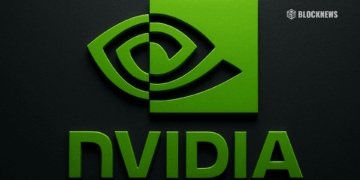Jack Dorsey has never liked Web3 and he isn’t afraid to show it. Believing that Web3 is just as bad as Web3 but for different reasons, Dorsey has cooked up his own idea of an alternative– Web5.
The news came on Friday when Dorsey announced that his company, Block, a digital payment company, would be working to develop a more improved version of a decentralized internet, coined Web5.
The company shared its idea with CoinDesk, it read, “Identity and personal data have become the property of third parties. Web5 brings decentralized identity and date storage to individual applications. It lets devs focus on creating delightful user experiences while returning ownership of data and identity to individuals.”
The project was announced Friday, but its open-source development is very much still in the works, therefore not giving it an official release date. The name Web5 is a direct jab at the term Web3 and is founded on the belief that Web5 is the superior alternative to a decentralized internet.
While attending CoinDesk’s Consensus Panel at one of their events, Mike Brock, who was wearing a black and yellow tracksuit with the number 5 ironed onto his shirt, explained why their version of the new form of the internet would be better. He said that in addition to being “two better than Web3” – would beat out incumbent models by abandoning their blockchain-centric approaches to a censorship-free, identity-focused web experience.
“This is really a conversation about what technologies are built to purpose, and I don’t think that renting block space, in all cases, is a really good idea for decentralized applications,” Brock said.
He goes on to say, “I think what we’re pushing forward with Web 5 – and I admit it’s a provocative challenge to a lot of the assumptions about what it means to decentralize the internet – really actually is back to basics. We already have technologies that effectively decentralize. I mean, BitTorrent exists, Tor exists, [etc].”
Web 5’s monetary layer will be built on the foundation of Bitcoin. This was expected given Dorsey’s outspoken support for the blockchain.
Web5 will allow the users to interact with each other without the need for intermediaries. This is supposed to mean that no external forces, such as government, third parties, or centralized internet outages, among other supposed improvements to Web2. Web5 is also meant to provide users with a “decentralized identity” that would let them use applications without ever having to log in. User data will also be protected, as opposed to the current conditions in Web2 that allow third parties and services to access user data. Users will now have the option to give their data with permission.













